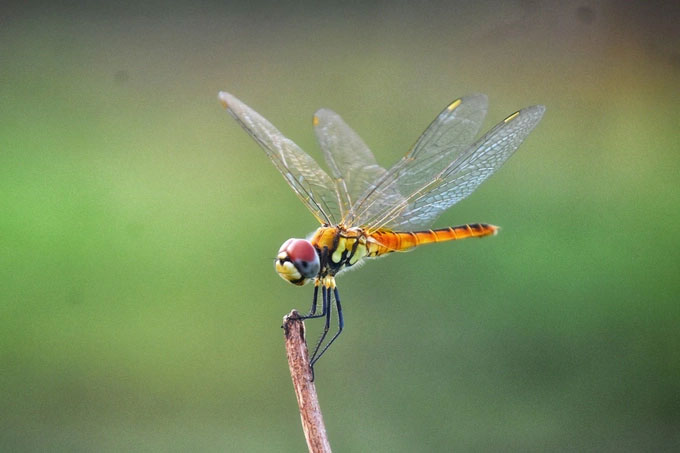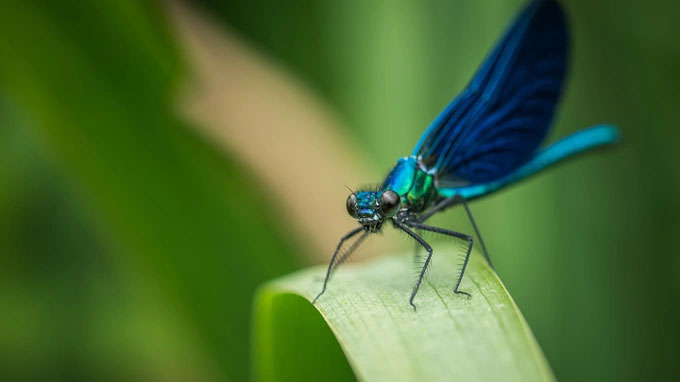When thinking of the most fearsome predators in nature, you might picture large and fast animals like tigers and leopards. However, upon examining the statistics, it turns out that leopards only successfully catch prey about 20 to 30% of the time during their hunts.
So, which animal is the most skilled predator on Earth?
It is the dragonfly. Dragonflies are small creatures that move swiftly. Despite their size, they are far from being prey for other predators. Instead, dragonflies are the most successful predators in the insect world, boasting a success rate of 95%. This is a higher success rate than any other animal on this planet, according to the Willistown Conservation Trust.

Dragonflies are the most successful predators in the insect world.
However, as they age, they do not maintain their “form” as effectively. When they first emerge, dragonflies employ a unique movement method that no other animal possesses: jet propulsion. At their peak age, combined with their excellent flying abilities, they become the most successful predators on Earth.
The reason dragonflies achieve such feats is due to the evolutionary design of their bodies. They can control their front and back wings independently, allowing for easy maneuverability, precise ascents and descents, and accurate forward and backward movement. They can also flap their wings to hover in the air, surveying their surroundings. Speed is also a crucial factor that contributes to dragonflies being the most formidable predators.

Speed is one of the factors that make dragonflies formidable predators.
<pHowever, speed is not everything. Their exceptional ability to predict where their prey will move allows dragonflies to always stay on track with their targets. This skill is what makes dragonflies one of the best-known predators in science.
<pOf course, scientific discoveries are always ongoing. For instance, previously, the most fearsome predator was a blue soft-bodied creature that hunted at the ocean floor, but it has been “overthrown” by the dragonfly. It is possible that at some point, we will discover another creature that breaks the dragonfly’s record, but for now, the crown still rests upon the head of this tiny creature.


















































